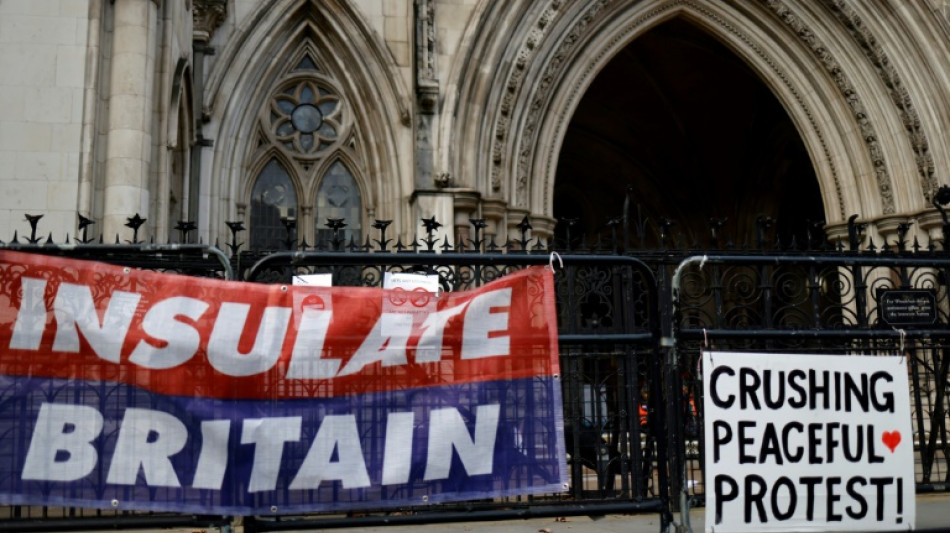

UK eco-activists rail against judge's ban on using climate defence
"We had no defence," said environmental campaigner David Nixon referring to a British judge's recent surprise ruling that barred him from using climate change as a defence for a road-blocking protest.
Nixon, a 36-year-old former social worker, was one of three protesters who refused to abide by the ban, earning him a contempt of court conviction and four weeks in jail.
"We should be allowed to mention the climate crisis wherever we go, especially in front of a jury," he told AFP. "On the back of that, we had no defence."
Nixon is part of Insulate Britain, which campaigns for better home insulation, typically adopting disruptive tactics including blockading transport networks.
Their actions have enraged motorists and the Conservative government, which wants to restrict this form of protest.
The group ramped up its campaign in late 2021, leading to dozens of arrests and 56 prosecutions on at least 201 "public nuisance" charges.
Nixon was arrested after taking part in a blockade in the heart of the City of London financial district on October 25, 2021.
In court, judge Silas Reid forbade Nixon and three co-defendants facing charges from talking about their motives, telling the jury they had no bearing on their guilt.
Failure to abide by the ruling would be considered as contempt of court.
Nixon was the only one of that quartet to ignore the order, arguing that public disruption requires giving "an honest account of what we did and why we did it".
- 'Denied justice' -
Nixon was sentenced to eight weeks behind bars and served four.
"I didn't personally try to appeal," he said. "I knew what I was doing and judge Reid told me what he was gonna do and he did it."
The conviction revealed "how ridiculous it is in 2023 that people are getting jailed for mentioning climate change," he added.
"Just to show up that it is ridiculous, I'm more than happy for that," Nixon said of his stint in prison.
All four defendants were found guilty of the original charges and will soon be sentenced.
Giovanna Lewis, a 65-year-old local councillor from southern England, spent three and a half weeks in prison after separately refusing to comply with the same judge's ruling.
"Reid calls it contempt of court, I call it truth-telling," said Lewis, adding: "I couldn't go in the court and be silenced that way."
"I had to tell the truth and take the consequences," she told AFP. "We've been denied justice".
Other activists involved in similar cases have been able to explain their motives in their trials and were acquitted, she noted.
- 'Huge win' -
According to human rights lawyer Jodie Blackstock, the defendants have been denied "the right to a fair trial" and an "effective defence".
Lawyers announced on Thursday that they would appeal the contempt of court convictions on behalf of two of the three activists who were jailed.
The Good Law Project, which launched a fund to finance the appeal, denounced the "disturbing decisions that silence climate protesters and undermine the crucial role both protest and jury trial play in upholding our democracy".
On March 31, another Insulate Britain activist was found guilty of "public nuisance" and also ignored Reid's ban, but this time without being held in contempt.
Insulate Britain applauded a "huge win for free speech".
"Whatever the reason, we are very glad that today judge Reid has come to his senses and put an end to his campaign of jailing people for speaking the whole truth in UK courtrooms," said Cameron Ford, an Insulate Britain spokesperson.
The Courts and Tribunals Judiciary, which oversees the judicial system in England and Wales, declined to comment.
"We are never able to comment on individual cases or decisions made by judges when they are in court," a spokesperson said.
J.Suarez--ESF




